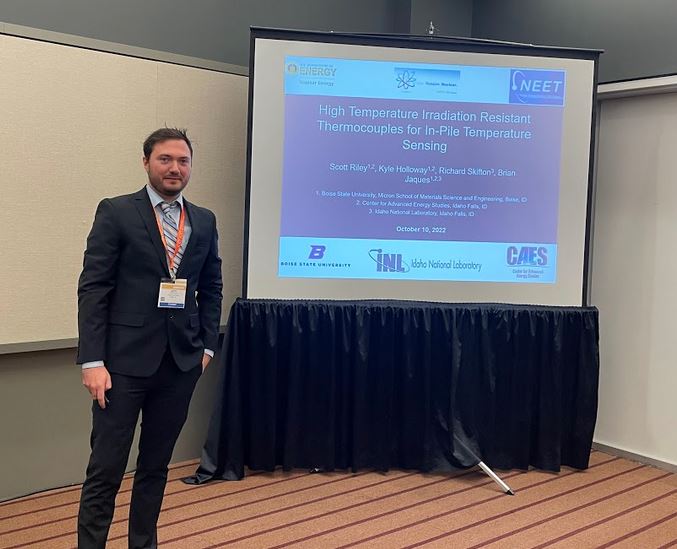
Scott Riley, a Ph.D student in the Advanced Materials Laboratory (AML) recently presented at the Materials Science and Technology Conference (MS&T) in Pittsburgh Pennsylvania. He discussed his work on the development of high temperature irradiation resistant thermocouples (HTIR-TCs) for in-pile temperature sensing. These thermocouples were developed by the Idaho National Laboratory (INL) and are composed of phosphorus-doped niobium and lanthana-doped molybdenum thermoelements, an alumina insulation, and a sheath made of either niobium or its alloys. The HTIR-TCs require an initial heat treatment to stabilize the generated EMF signal, but the mechanism for stabilization was not well-understood.These thermocouples were tested in the Advanced Test Reactor at INL between 2018-2020, at temperatures up to approximately 1450 °C for 125 effective full power days with an accumulated neutron fluence of 1021 N/cm2. The stabilization was found to be dependent upon the formation of an interaction region between the Nb-P thermoelement and the alumina insulation. Outside of his talk, Scott attended a number of symposia with topics ranging from the state of the art in-situ irradiation of additively manufactured components to the synthesis of oxidation resistant refractory alloys.